Speakers
Prologue Talks
Microplastics an invisible risk
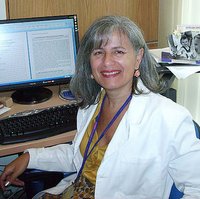
Margherita Ferrante, married with two sons and four grandchildren, graduated in Medicine and Surgery and in Biology, specialist in Public Health and in General Pathology, Full Professor of General and Applied Hygiene, Director for Environmental and Food Hygiene Laboratories (LIAA), Department of Medical, Surgical Sciences and Advanced Technologies, University of Catania, and Director of the Hygiene Complex Unit of the Catania University Hospital. Head of the Integrated Cancer Registry CT-ME-EN. Coordinator of numerous national and international working groups. Member of numerous national and international commissions and scientific societies. Member of the task-force environment and health of the Italian Ministry of Health. She has had numerous awards, including the Merli Award for the Environment in 2019. Author of about 800 publications in national and international journals. Editor and Reviewer in numerous International Impacted Journals.
Everything connects us to the Ocean
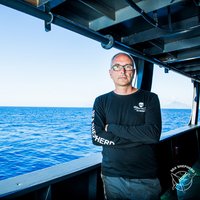
Andrea Morello, 41, is the founder of Sea Shepherd Italia, whose mission is to stop the destruction of natural habitats and the slaughter of wildlife in the world oceans. He and the nearly 700 volunteers struggle every day to save the highest number of aquatic species like whales, tuna and turtles by the increasingly threatening action of poachers. Sea Shepherd Italia’s adventure began when the “Steve Irwin”, the flagship of the Sea Shepherd Conservation Society, landed in La Spezia, in the Mediterranean Sea, in July 2010, during the “Blue Rage” campaign, where 800 illegally caught bluefin tuna were released. For this operation in 2012 Sea Shepherd was awarded as the best organization for the defence of the sea. In 2014 “Safe Operation” started, aiming to protect Mediterranean Sea and the Oceans, all the natural resources, and biodiversity. In 2017, the “Jairo Mediterranean campaign” started to protect turtle nests, which in the same year led to the confiscation of 74 km of illegal fishing aggregating devices (FAD) in the sea of the Aeolian Islands. In recent years, Sea Shepherd has become increasingly present in Italy and today it has hundreds of volunteers scattered in almost every Italian Region who organize beach cleanings, interventions in schools and collaborate ever more closely with authorities, institutions and other environmental organizations in defence and conservation of our oceans.
Session 1: PACKAGING REQUIREMENTS FOR REDUCING FOOD LOSSES
Packaging requirements for reducing food losses
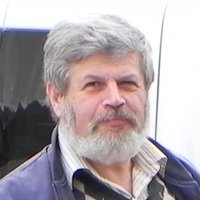
Dr Victor Rodov, Senior Research Scientist at the Department of Postharvest Science, Agricultural Research Organization (ARO) – The Volcani Institute, Israel. Ph.D. in Plant Physiology from the USSR Academy of Sciences since 1985.
Teaches “Postharvest Biology and Technology” and “Fruit and Vegetable Storage” at the Hebrew University of Jerusalem.
Editorial board member of the ‘Postharvest Biology and Technology’, ‘Foods’, and ‘The Open Food Science Journal’. Published above 140 research papers including 13 book chapters and invited reviews.
Research Interests: Postharvest physiology and technology, Fresh-cut ready-to-eat fruits and vegetables: physiology, technology and safety, Food packaging, e.g. modified-atmosphere and modified-humidity packaging, Postharvest treatments to improve quality and safety of fresh produce, Plant secondary metabolites: antimicrobials, antioxidants, phytonutrients, New functional food products of plant origin, Utilization of agri-food wastes for producing beneficial products.
Session 2: ACTIVE AND SMART PACKAGING
Active and intelligent packaging as tool to improve food quality and safety
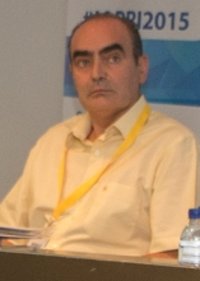
Rafael Gavara, PhD. in Chemistry, Research Professor at the Institute of Agrochemistry and Food Technology of CSIC located in Paterna (SPAIN), leader of the Packaging Group. My area of specialization is food/packaging interaction, the development and characterization of packaging materials, and packaging technologies with special emphasis on active and intelligent packaging. I am author of 200 articles in SCI journals, and co-author of two books on food packaging. I regularly participate in three master's programs at Univ. Valencia, in Univ. Polytechnic of Valencia and in the Univ. Pública de Navarra. My teaching activities are related to food packaging. I also organize (and participate in) long-life educational programs for professional recycling. Among the teaching activities, I have supervised 15 doctoral theses and 5 postdoctoral contracts.
Session 3: NEW FOOD PACKAGING MATERIALS
Challenges on obtaining high oxygen and water barrier compostable films
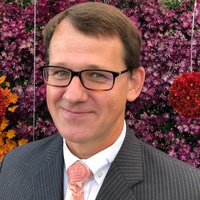
Rafael Auras is a professor with the School of Packaging at Michigan State University (MSU). He leads a research group of graduate and undergraduate students interested in mass transfer in polymers, biodegradable polymers, life cycle assessment, and development of packaging systems for sustainable development. He has conducted research projects for Fortune 500 companies and government sponsored research projects. He is a regular speaker at national and international conferences. He has coauthored more than 200 publications. Rafael graduated with a B.Sc. in chemical engineering from the FCEQyN, Misiones, Argentina, an M.Sc. in Materials Science and Technology from the UNSAM, Buenos Aires, Argentina, and a Ph.D. in Packaging from MSU, East Lansing, MI, U.S.
Session 4: ENSURING SAFETY OF THE FOOD CONTACT MATERIAL
The challenge of NIAS migration from emerging food packaging materials
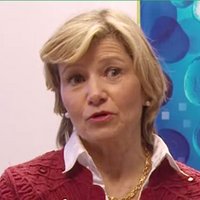
Cristina Nerin, Full Professor at the University of Zaragoza (Spain), PhD in Analytical Chemistry, Master in Science (Analytical Chemistry) and Degree in Chemistry at the University of Zaragoza (Spain) Director of the Research Group GUIA at the University of Zaragoza and Director of the Master in Environmental Engineering at the University of Zaragoza from 1990 to 2012. Author of more than 390 Scientific Publications included in the Citation Index, Director of 37 PhD Thesis (5 more are in process). Principal Investigator of more than 240 Research Projects in both Competitive calls and also R&D&I with Industry Inventor in six International Patents dealing with active packaging and in one International Patent on Intelligent Packaging. All of them are in exploitation (market).
Session 5: PACKAGING SUSTAINABILITY, CONSUMER ATTITUDES AND COMMUNICATION
Consumer Trends and Perceptions toward Sustainable Packaging Solutions
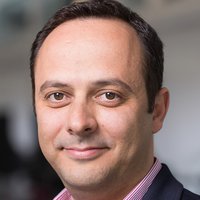
Polymeros Chrysochou, Professor of Marketing at the Department of Management, Aarhus University, Denmark, and an Adjunct Senior Lecturer at the Ehrenberg-Bass Institute for Marketing Science at University of South Australia. At Aarhus University I am affiliated with the MAPP Centre where I have the role of coordinator for industry collaboration. My main research focuses on thematic areas of marketing communications and branding. I am particularly interested in topics related to packaging design, sustainability, and healthy eating behaviours.
Session 6: METRICS AND ASSESSMENT OF PACKAGING SUSTAINABILITY
The most sustainable packaging – how to define your best individual solution
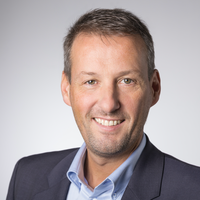
Peter Désilets is Managing Director and Co-founder of pacoon GmbH, based in Munich an office in Hamburg. PACOON is the leading packaging design agency for sustainable packaging solutions in Central Europe. PACOON has been following developments in sustainability for over 13 years and organised the 'SOLPACK - International Conference for Sustainable Packaging' four times since 2012. PACOON organises training courses and workshops and advises companies on evaluating and developing solutions. The agency has a broad network of suppliers and institutes and is itself involved in several customer and promotion projects for innovative food packaging.
Session 7: RECYCLING AND END-LIFE
One Bin To Rule Them All
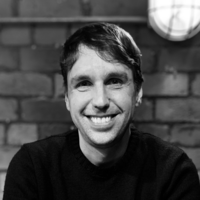
Michael Shaver, (FRSC, FIMMM) is Professor of Polymer Science in the School of Natural Sciences at the University of Manchester where he leads initiatives in sustainable polymers, plastics and materials for the Henry Royce Institute, the UK’s national advanced materials science centre. He is Director of the new Sustainable Materials Innovation Hub, supporting SMEs in Greater Manchester to make smart, sustainable material choices. He has published >100 papers, delivered >80 invited lectures and been recognised with a MacroGroup Young Polymer Scientist award, two Canada Foundation for Innovation Leadership Awards and Fellowships in the Young Academy of Scotland, Royal Society of Chemistry and Institute of Materials, Minerals and Mining.
Session 8: PACKAGING AND LOGISTICS
Decision on Disposable or Returnable Packaging: searching optimal solution using fuzzy mathematical approach
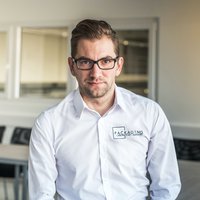
Péter Böröcz is an associate professor and head of Packaging Laboratory at Széchenyi István University (Hungary, Győr, https://packlabhu.com/). He graduated as Transportation engineer and Management specialist. His PhD dissertation was based on the mathematical modeling possibilities of decision problem between disposable and returnable packaging systems in logistics. His main research topics are: Packaging testing methods for transport simulation purposes; Packaging dynamics during logistics processes; Mathematical optimization of packaging solutions with game theory and fuzzy method. Author of more than 40 peer-reviewed papers in international journals of packaging and supervisor of many PhD research works. Member of IAPRI (International Association of Packaging Research Institutes) and ISTA (International Safe Transport Association), and participates in the work of COST Packaging Action (CA19124).